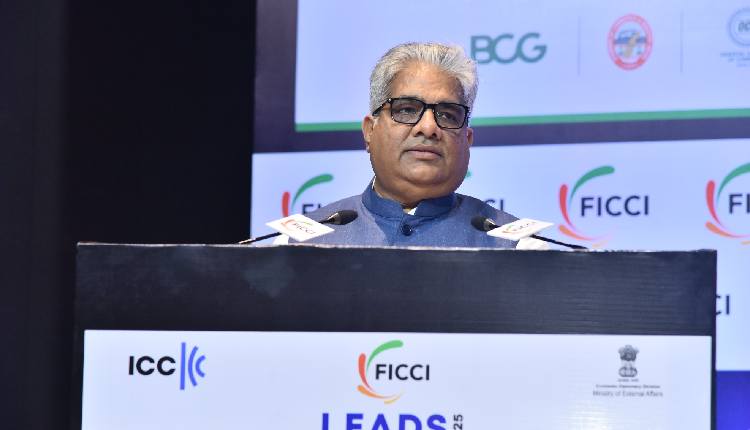Our Terms & Conditions | Our Privacy Policy
India Creating Vital Mechanisms To Meet $10 Trillion Target For Net-Zero Goal By 2070: Minister
New Delhi: India will require over $10 trillion by 2070 for achieving its Net Zero ambitions and towards this, the country is fostering vital blended finance mechanisms that leverage public money to de-risk and accelerate private investment in renewable energy, energy efficiency, electric mobility, waste-to-wealth and nature-based solutions, Union Minister Bhupender Yadav said on Thursday.
The 21st century presents a twin responsibility for nations such as India — meeting the developmental aspirations of a young and ambitious population while simultaneously protecting the planet from the impact of climate change, biodiversity loss and ecological degradation.
Under the leadership of Prime Minister Narendra Modi, India has chosen a path that is marked by ambition, innovation, and transformation, said the minister at the 4th edition of FICCI’s LEADS event here, lauding the industry for reflecting the spirit of pursuing both economic growth and ecological sustainability.
Delivering a keynote address on the subject of Green Financing, the minister underscored that the pathway to building economies of the future rests on aligning progress and profits with sustainability, with people and ecosystems placed at the centre of growth.
He stressed that collaborative growth among governments, industry, regulators, global financial institutions, and citizens is key to meeting the challenge of climate change while ensuring inclusive economic development.
In his address, the Minister took the audience through the journey of industrialisation and progress that has contributed to global environmental degradation over the past two centuries. He pointed out that the rising global temperature thresholds—1.5 to 2 degrees Celsius—symbolise not merely climate science but the consequences of unsustainable growth. The industry, he argued, must be mindful not only of its profit figures but also of the environmental costs hidden behind them.
He emphasised that green finance is not to be seen as a niche intervention but as the backbone of competitive and resilient economies. It involves restructuring capital flows so that every investment — in infrastructure, agriculture, transport, or industry — not only yields economic returns but simultaneously strengthens sustainability.
Green financing, he stressed, must form economic systems in which growth is interwoven with ecological well-being and the health of communities.
Yadav highlighted steps taken by India to build confidence in green investments. The issuance of sovereign green bonds, which have attracted wide international interest, was cited as evidence of strong confidence in India’s green development potential.
Regulators such as the Reserve Bank of India and the Securities and Exchange Board of India are also intensifying action to promote responsible disclosure, accountability and transparency in green instruments, thereby ensuring long-term trust and stability in the sector.
The minister also spoke about the government’s Green Credit Programme, launched in October 2023, as an innovative instrument to encourage individuals and institutions to voluntarily undertake positive environmental action such as eco-restoration.
Yadav emphasised that financing mechanisms for this transition must ensure inclusivity, providing benefits to MSMEs, farmers and vulnerable communities.
(IANS)
Images are for reference only.Images and contents gathered automatic from google or 3rd party sources.All rights on the images and contents are with their legal original owners.



Comments are closed.